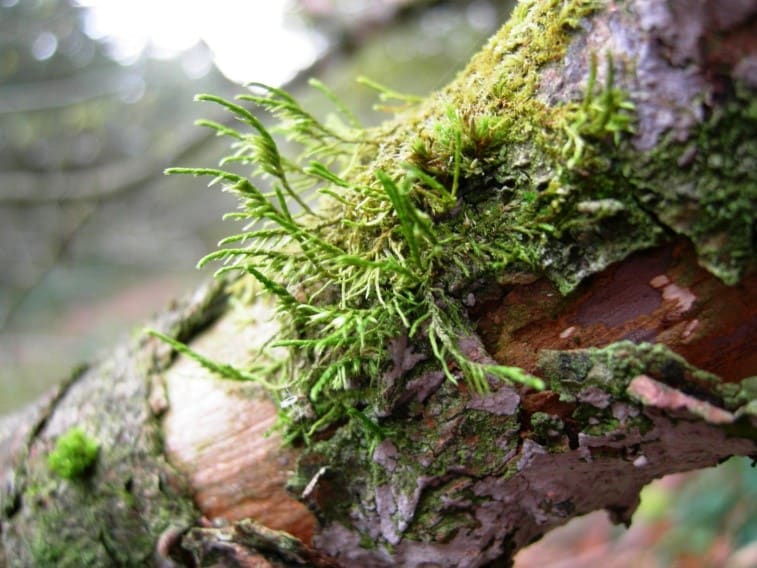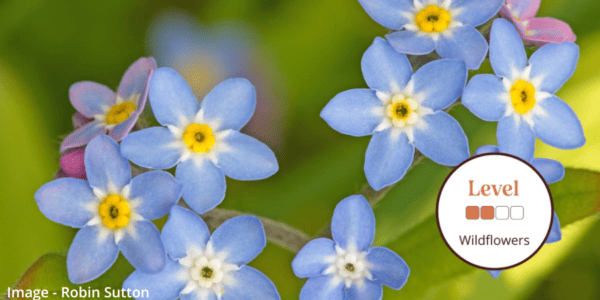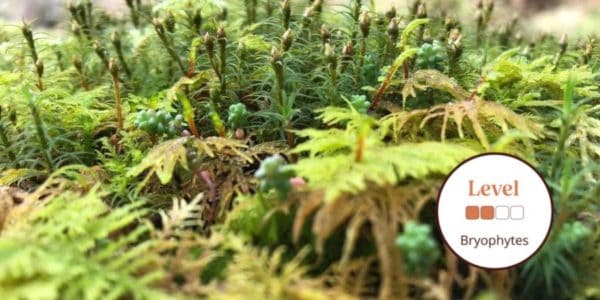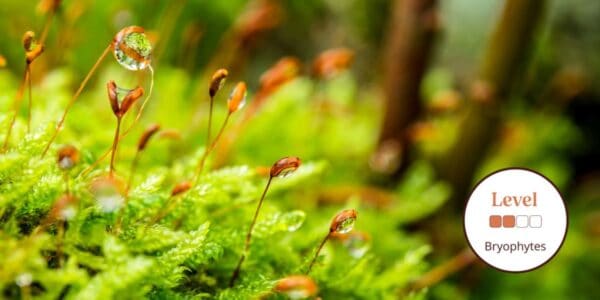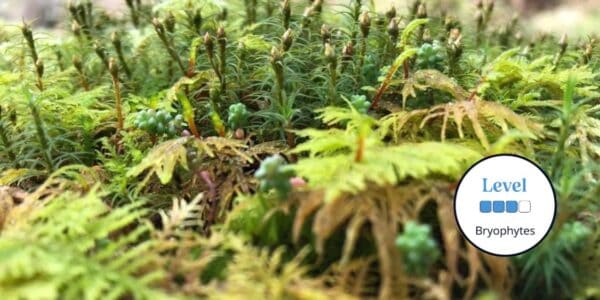This course is fully booked.
Find our full listing of courses here
Have you ever wondered what makes up the bright green carpets on rocks and trees? If you take a closer look, a diverse and prehistoric world is revealed. With over half of all European moss, liverwort and hornwort species present in the UK, there is so much to explore!
This introductory bryophytes course is a great place to start for those taking their first steps into the world of mosses, liverworts and hornworts (bryophytes). You will gain a better understanding of this diverse group, all under the guidance of an engaging and knowledgeable expert in the field. You will learn about the biology and ecology and have ample time to explore your surrounding environment to find some specimens, learning valuable observational field identification tips.
Be inspired and engaged by the expertise of our specialist tutor and enjoy being surrounded by likeminded individuals who share your interests.
If you’re interested in finding out more about mosses, liverworts and hornworts but don’t feel quite ready for a specific field ID course, then this is the course for you!
Your course takes place on a 12-hectare estate, surrounded by a rich range of habitats, including the River Severn and semi-ancient woodland, set in the heart of Shropshire with views disappearing into Wales.
If you would like to book accommodation, lunch and an evening meal at FSC Preston Montford, please email [email protected]
Bookings will close if course capacity is reached
Who Should Attend?
Nature enthusiasts, Students, Rangers, Early career consultants and ecologists.
Knowledge Level
Introductory. Level descriptors can be found on the following webpage: Framework and Course Level Descriptors
Prior Knowledge
No existing knowledge, or experience is needed for this course. Just a willingness to explore and learn.
What will be covered during this course?
- An introduction to bryophyte biology
- An introduction to bryophyte ecology
- An overview of the species diversity within the UK
- Please note that this course is NOT a species identification course
By the end of the course, you will be able to:
- Describe which groups of organisms are classified as bryophytes and what makes them different from all other plants
- Understand the basics of bryophyte lifecycles and reproductive strategies and structures
- Describe bryophyte habitats and their environmental conditions
- Recognise groups of common bryophytes in their natural environments
- Share this knowledge with friends, family, and fellow volunteers.
This is a place-based training course from FSC, including a balance of classroom-led learning to impart important knowledge and irreplaceable hands-on outdoor learning opportunities to give individuals skills and confidence. After attending this course, you may like to progress your learning within Bryophytes with further relevant FSC courses or branch out into other areas of flowering and non-flowering plants. The FSC offers both online and in person courses, so you can choose the learning style that suits you best.
The course gives you the opportunity to immerse yourself in a new subject and acquire novel skills. Our fantastic tutor Lucia Ruffino will combine the use of classroom-led learning and outside learning opportunities to give individuals the skills and confidence to learn more about the lives and ecology of bryophytes.
- See the ‘Example Timetable’ and ‘What’s Included’ sections below for more information about this course.
- Upon booking you will need to provide individual details of all attendees
- Please email [email protected] if you have any questions.
Group Bookings Made Easy
If you have a group of 10 or more individuals wanting to complete one of our courses, our team are available to discuss your options – from discounts to private team courses.
- Discounted rates
- Privately run courses for your group
- Bespoke courses developed specifically for your needs
Email [email protected] to discuss your options!
Tutor: Lucia Ruffino
Lucia Ruffino is a bryologist and free-lance botanical surveyor living and working in North Wales. Lucia’s botanical knowledge has developed over the years from an amateur background and she now specialises in NVC surveys in upland and peatland habitats.Covid Measures
In order to keep our customers and staff safe, we ask that anyone attending our centres:
- Wears a face covering when in shared indoor space (unless exempt).
- Maintains social distancing.
- Cleans their hands regularly.
- Takes a Covid-19 test before they arrive.
Book with Confidence
We understand the difficulties of making plans in the current situation when guidelines continue to change, and insurance conditions are being tightened. In response, we will continue to offer additional flexibility. Find out more here
Example Timetable
This timetable is subject to change but should give a clear outline of what to expect
-
- Please arrive in time for the course to start promptly at 10:00am
- The course will end at 5:00pm
Day 1
| 10:00am | Introductions |
| 10:30am | Classroom session covering:
|
| 11:30am | Break and prepare for field session – refreshments not provided |
| 11:45am | Guided walk to try to find some species to bring back to the classroom |
| 1:00pm | Lunch – Not included |
| 2:00pm | Classroom session covering:
|
| 3:00pm | Break and prepare for field session – refreshments not provided |
| 3:15pm | Guided walk to apply classroom knowledge |
| 4:30pm | Classroom plenary and final questions |
| 5:00pm | Finish |
Please note accommodation and an evening meal is not included
What's Included
The course has been carefully created by expert tutors and educators to help you build your knowledge and apply it within the field surrounded by like-minded individuals.
The course includes:
- Classroom learning covering the theory of the species
- Field excursions to apply new knowledge
- Expert tuition for which the FSC is renowned
- Clear objectives and progression
You can rest assured that the absolute best content from an expert in environmental education will be provided. In choosing an FSC course, you will be joining thousands of people who learn with us each year.
Before You Attend
What to Bring:
- Notebook and pencil
- Camera to capture images
- Lunch and refreshments
- Sensible footwear and clothing for being outdoors
- Hand lens (if you have one)
There will be a member of staff with first aid training and access to a first aid kit on site. If you have special medical or access requirements, please let us know as soon as possible so we can plan the course.
Sorry this course has ended

